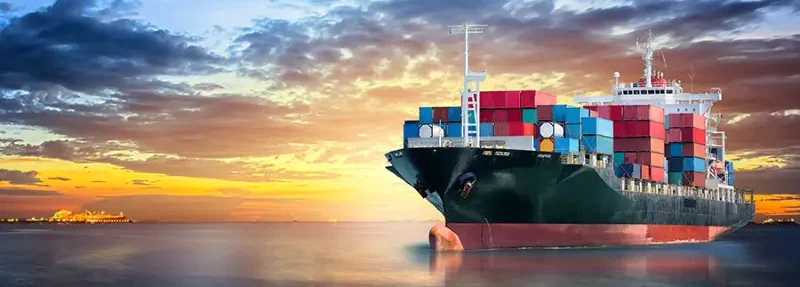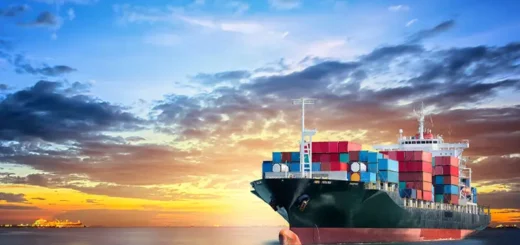Freight forwarding de-mystified by Mary MacKinven — Exporter Magazine
 Shipping goods to overseas customers requires specialised services and sound knowledge. It’s a job best left to the experts. This guide is designed to de-mystify freight forwarding for the uninitiated.L anding a precious cargo on the other side of the world in one piece and on time is complex and risky for exporters, but it is the daily bread of freight forwarders.Exporters can dial up a freight forwarder to book transport from their own door to their customer’s and to sort out compliance documentation, insurance and border clearance – or just a part of the conveyance.Airlines and shipping lines tend not to be interested in dealing directly with exporters and importers unless these traders have large volumes and/or regular cargo – so freight forwarders are the answer, says Rosemarie Dawson, the executive director of the Customs Brokers and Freight Forwarders Federation of New Zealand (CBAFF).Freight forwarders can pool product from multiple exporters into a container load, for example, and negotiate a better price and service than each exporter could alone.They arrange a mix of land transport, air and sea freight, knowing the best routes, carriers and rates to find the best deal.Customs brokers, logistics solutions providers and freight forwarders can all offer full logistic services. It’s a matter of checking websites and asking companies what they do.The paperwork for banking/finance, transport and compliance associated with any export is often completed electronically but must be appropriate, accurate and on time. A typical shipment by sea or air requires eight to 15 documents. “It’s all very well to understand the processes but it’s not an exporter’s core business, so they should use a professional to help them do the job,” Dawson advises.But freight forwarders are not miracle workers. “There are many external influences that cause changes to schedules, such as decisions by shipping lines and airlines, which we have little or no influence on.”Furthermore, reports of Fonterra and the huge meat industry possibly sharing shipping space have implications for little Joe Exporter’s access to space on ships for his (lower value) one container a year.Looking at the bigger picture, a general lack of international security still bubbles around unresolved, and on the radar is the US possibly requiring all air cargo to be screened, maybe as soon as the end of the year. And where the US goes, the EU will be fairly close behind, Dawson says.Two significant and ongoing logistics developments in New Zealand aimed to help exporters are the Trade Single Window electronic sharing of information between the New Zealand Customs Service and the Ministry of Agriculture and Forestry, and the Productivity Commission’s International Freight Transport Services Inquiry. The latter is investigating the effectiveness of infrastructure and regulatory regimes in promoting accessibility to, and efficiency in, international transport services.Dawson has written a detailed ‘how to’ guide to freight forwarding and customs broking in the New Zealand Export and Trade Handbook 2011 (published by Adrenalin Publishing, the new owner of Exporter magazine). And the CBAFF website lists members located around New Zealand.She recommends exporters write a list of questions or shipping requirements, then get quotes from freight forwarding companies to find one that suits.
Shipping goods to overseas customers requires specialised services and sound knowledge. It’s a job best left to the experts. This guide is designed to de-mystify freight forwarding for the uninitiated.L anding a precious cargo on the other side of the world in one piece and on time is complex and risky for exporters, but it is the daily bread of freight forwarders.Exporters can dial up a freight forwarder to book transport from their own door to their customer’s and to sort out compliance documentation, insurance and border clearance – or just a part of the conveyance.Airlines and shipping lines tend not to be interested in dealing directly with exporters and importers unless these traders have large volumes and/or regular cargo – so freight forwarders are the answer, says Rosemarie Dawson, the executive director of the Customs Brokers and Freight Forwarders Federation of New Zealand (CBAFF).Freight forwarders can pool product from multiple exporters into a container load, for example, and negotiate a better price and service than each exporter could alone.They arrange a mix of land transport, air and sea freight, knowing the best routes, carriers and rates to find the best deal.Customs brokers, logistics solutions providers and freight forwarders can all offer full logistic services. It’s a matter of checking websites and asking companies what they do.The paperwork for banking/finance, transport and compliance associated with any export is often completed electronically but must be appropriate, accurate and on time. A typical shipment by sea or air requires eight to 15 documents. “It’s all very well to understand the processes but it’s not an exporter’s core business, so they should use a professional to help them do the job,” Dawson advises.But freight forwarders are not miracle workers. “There are many external influences that cause changes to schedules, such as decisions by shipping lines and airlines, which we have little or no influence on.”Furthermore, reports of Fonterra and the huge meat industry possibly sharing shipping space have implications for little Joe Exporter’s access to space on ships for his (lower value) one container a year.Looking at the bigger picture, a general lack of international security still bubbles around unresolved, and on the radar is the US possibly requiring all air cargo to be screened, maybe as soon as the end of the year. And where the US goes, the EU will be fairly close behind, Dawson says.Two significant and ongoing logistics developments in New Zealand aimed to help exporters are the Trade Single Window electronic sharing of information between the New Zealand Customs Service and the Ministry of Agriculture and Forestry, and the Productivity Commission’s International Freight Transport Services Inquiry. The latter is investigating the effectiveness of infrastructure and regulatory regimes in promoting accessibility to, and efficiency in, international transport services.Dawson has written a detailed ‘how to’ guide to freight forwarding and customs broking in the New Zealand Export and Trade Handbook 2011 (published by Adrenalin Publishing, the new owner of Exporter magazine). And the CBAFF website lists members located around New Zealand.She recommends exporters write a list of questions or shipping requirements, then get quotes from freight forwarding companies to find one that suits.
Each has different strengths. Larger freight forwarders might be able to get better prices on carriers for large volumes, but smaller forwarders might provide more personal service. Some specialise in sea freight, others in air or mail and courier deliveries, or, in particular, geographic locations or product categories. Some also offer ‘urgent services’ at a higher cost.
No holds barred
TNT Express Worldwide (NZ) moves goods by air and land only, including documents (for example, where originals are still needed), parcels and freight – which can weigh tonnes.The company offers a range of time and day definite services globally. For even faster shipping, TNT’s special services division is on call 24/7 to secure the next flight out, charter or do whatever it takes to meet a special logistical need (for example, flying in parts for surgery or urgent installations).National sales and marketing manager Brent Carter weighs up the benefits of air: “We are more flexible and fast which increases speed to market. There is no need for warehousing with small consignments and fast turnaround.”TNT coaches new exporters through the process to help them find the right solution.DB Schenker is available for every mode of transportation as well as warehousing. Managing director Oliver Bohm stresses buyers and sellers of goods should be aware of their responsibilities and the rules in international trade, and should therefore make themselves familiar with ‘Incoterms 2010’ when signing contracts with overseas suppliers or customers. He explains freight forwarders generally act as a service broker, dealing on behalf of the shipper/importer with parties such as shipping lines, customs brokers, road transport providers and quarantine officers.
They generally offer exporters two charging options: a quote for a full door-to-door rate that includes all services from pick-up to delivery; or a detailed list of charges that includes the freight rate port-to-port, fuel surcharge, handling at the terminal/port and customs clearance. detailed list of detailed list of charges that includes the freight rate port-to-port, fuel surcharge, handling at the terminal/port and customs clearance.
Just ask
Hemisphere Freight Services specialises in packing LCL (Less than a Container Load) cargo, even just a few pallets or boxes – and while avoiding empty space, ships the goods as scheduled whether the container is full or not. The company also manages full containers.
Hemisphere Freight Services has offices in Auckland and Sydney, as well as alliances with agents worldwide. It can manage trans-Tasman shipments with a single transaction for handling at both ends, says founder/director John Crook.
He advises exporters to look for a freight forwarder who can provide information on the country they are shipping to.“Sometimes the importer will cater, but not if communication between seller and buyer is less than great. There’s a raft of information needed and that’s one of the main areas we can help for a smooth transmission.”Timing is critical in goods movement. Booking airfreight can be done closer to departure because turnaround is faster, but sea freight needs notice for packing/consolidating and delivery to port perhaps a day before the ship comes in.There is no room for deviation as shipments must fit in with security requirements, and documents take time to prepare.
The client account application will spell out where the freight forwarder’s liability ends (for example, for loss or damage) and the exporter’s begins – maybe it’s for ‘X’ amount of dollars per package. The company might do a credit check and limit its liability until the exporter proves reliable. Insurance quotes can be arranged for clients.
A business extension
No cargo is too big or small for Gateway Cargo Systems to handle, says director Stephen Kirkham.“A good reputable freight forwarder is truly an extension of your business. Shippers get the benefit of multi-level shipping options and costs to fit their business requirements, timeframes and costs.“I’m a great believer that shippers should take control of their supply chain. If it is handled poorly, even though the sale may have been made, generally the result is lost sales and revenue.“We also have the ability to collect payment from the consignee before releasing the goods. Most importantly ensure you are going to be paid!”A good forwarder will have flexibility, strong partnerships with their international agency network and the shipping companies, airlines and truck, van and rail operators. Clear and concise communication with all parties is paramount. But if exporters get the paperwork wrong, Gateway Cargo will tidy it up.Pengelly’s Group of Companies is a family firm with offices around New Zealand as well as five in Australia and one employee in China (Shanghai).The bi-lingual Chinese employee in Shanghai previously worked in Auckland but by being on the ground can chase up manufacturers and organise logistics at the China end, says Warren Pengelly, son of the founder.The phone numbers of Warren and his brother Trevor are the only two listed for after hours inquiries: “That’s how personal our service is.”The full service freight forwarders cover all cargo except perishables and personal effects.
All freight forwarders stressed the need for exporters to be insured.
Publishing Information
Magazine Issue
Exporter Sept/Oct 2011 Issue 20







